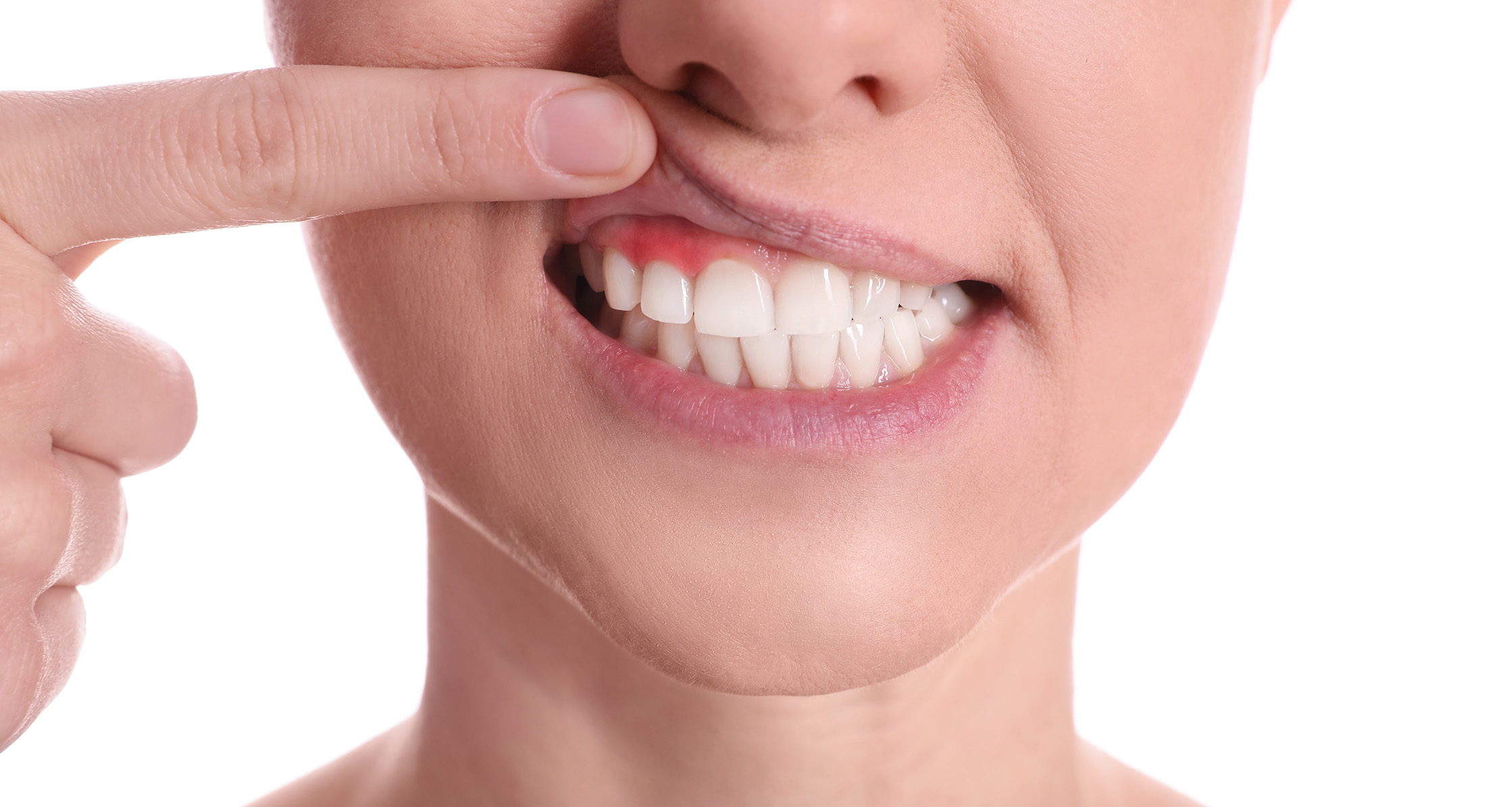While many tips for preventing gum disease apply to everyone, it’s especially important for people with diabetes to maintain a healthy mouth.
Having a healthy mouth and good oral hygiene is important for all of us, but did you know people with diabetes face an increased risk of oral health problems?
With diabetes affecting nearly 25% of the Veterans seeking care at the Department of Veterans Affairs (VA), it’s important to understand the connection between diabetes and oral health. Learn more about gum disease, its relationship to diabetes and what steps you can take to prevent it.
What Is Gum Disease?
Gum disease, also called periodontal disease, is a bacterial infection that causes inflammation of your gums and the bones that surround and support your teeth. If untreated, periodontal disease can lead to pain, persistent bad breath, chewing difficulties and even tooth loss.
Gum disease starts with a sticky film on your teeth called plaque. Plaque is formed when bacteria in your mouth mix with saliva and the residue from starchy and sugary foods in your diet. Plaque can harden into yellow or brown tartar if it’s not removed every day through brushing and flossing. The bacteria from plaque and tartar can cause swollen, bleeding, infected, and receding gums. If plaque isn’t removed, gum disease can develop.
What Are the Symptoms of Gum Disease?
According to the National Institute of Diabetes and Digestive and Kidney Diseases, there are several warning signs and symptoms related to gum disease, including:
 Bad breath that won’t go away
Bad breath that won’t go away- Red or swollen gums
- Tender or bleeding gums
- Increased space between your teeth
- Loose teeth
- Receding gums or longer-appearing teeth
- Dry mouth
What Is the Connection Between Gum Disease and Diabetes?
If your diabetes is not under control, you are more likely to develop problems in your mouth. In turn, having gum disease may make your blood sugar harder to control. This relationship happens for a number of reasons:
- Diabetes weakens your white blood cells, which are your body’s best defense against infections in your mouth.
- Diabetes and some medicines used to treat it can cause your body to make less saliva. Saliva is essential for washing away food particles, bacteria and tooth-decaying acids. When less saliva flows, the risk of mouth problems increases.
- Diabetes can increase the amount of glucose in your saliva. High glucose levels in saliva can lead to more bacteria growth and plaque buildup, causing gum disease.
Tips for Preventing Gum Disease and Keeping Your Mouth Healthy
While many tips for preventing gum disease apply to everyone, it’s especially important for people with diabetes to maintain a healthy mouth.
- Control your blood sugar levels. Good blood sugar control is key to controlling and preventing mouth problems. If you have diabetes, talk to your health care provider about managing your condition and keeping your blood sugar levels within your target range. You can develop a diabetes management plan together, which often includes taking medication regularly, eating a healthy diet and getting consistent physical activity. To learn more about diabetes, check out Diabetes: How Healthy Habits Can Make a Big Difference.
- Quit smoking. Smoking increases your risk of gum disease and can worsen your diabetes. For more information on quitting and some great support resources, check out Make a Plan You Can Stick to: Quit Smoking Today.
- Practice good oral hygiene. A good oral hygiene routine includes brushing your teeth for a minimum of two minutes twice a day and flossing daily. Talk to your dentist about any additional steps or helpful tools to add to your routine, such as a saline rinse or mouthwash, a dental pick, or an electric toothbrush. Check out Show Off That Smile: Why Your Dental Health Matters for more tips on maintaining a healthy mouth.
 Visit your dentist regularly. Getting a thorough cleaning and a checkup every six months can help catch any problems early when they’re most treatable. Talk to your dentist about your diabetes and discuss how it may impact your oral health. Your dentist may ask to see you more frequently or have suggestions for improving your oral health care routine.
Visit your dentist regularly. Getting a thorough cleaning and a checkup every six months can help catch any problems early when they’re most treatable. Talk to your dentist about your diabetes and discuss how it may impact your oral health. Your dentist may ask to see you more frequently or have suggestions for improving your oral health care routine.- Don’t ignore warning signs. You know your teeth and mouth best. If something doesn’t feel right, or if you notice a change in your gums or teeth, make an appointment and talk to your dentist right away.
Resources
- VA offers several resources to help you manage your diabetes. These resources include self-management education and support materials, as well as diet counseling, weight loss programs and blood glucose monitoring for all Veterans enrolled in VA health care.
- VA offers comprehensive dental care benefits to eligible Veterans. VA dental care includes highly trained dentists, state-of-the-art clinics and a wide variety of services from regular cleanings and x-rays to oral surgery and dentures. Learn more about whether you are eligible for VA dental care benefits.
- The Centers for Disease Control and Prevention (CDC) has more information on periodontal disease and diabetes, including a helpful diabetes care schedule that includes information on dental visits.
- The National Institute of Diabetes and Digestive and Kidney Diseases has a page on diabetes and dental health problems, which includes a lot of detailed information, as well as images to help you visualize the stages of gum disease.
Keeping your blood sugar levels under control and managing your diabetes care can help keep both you and your mouth happy and healthy for years to come.







